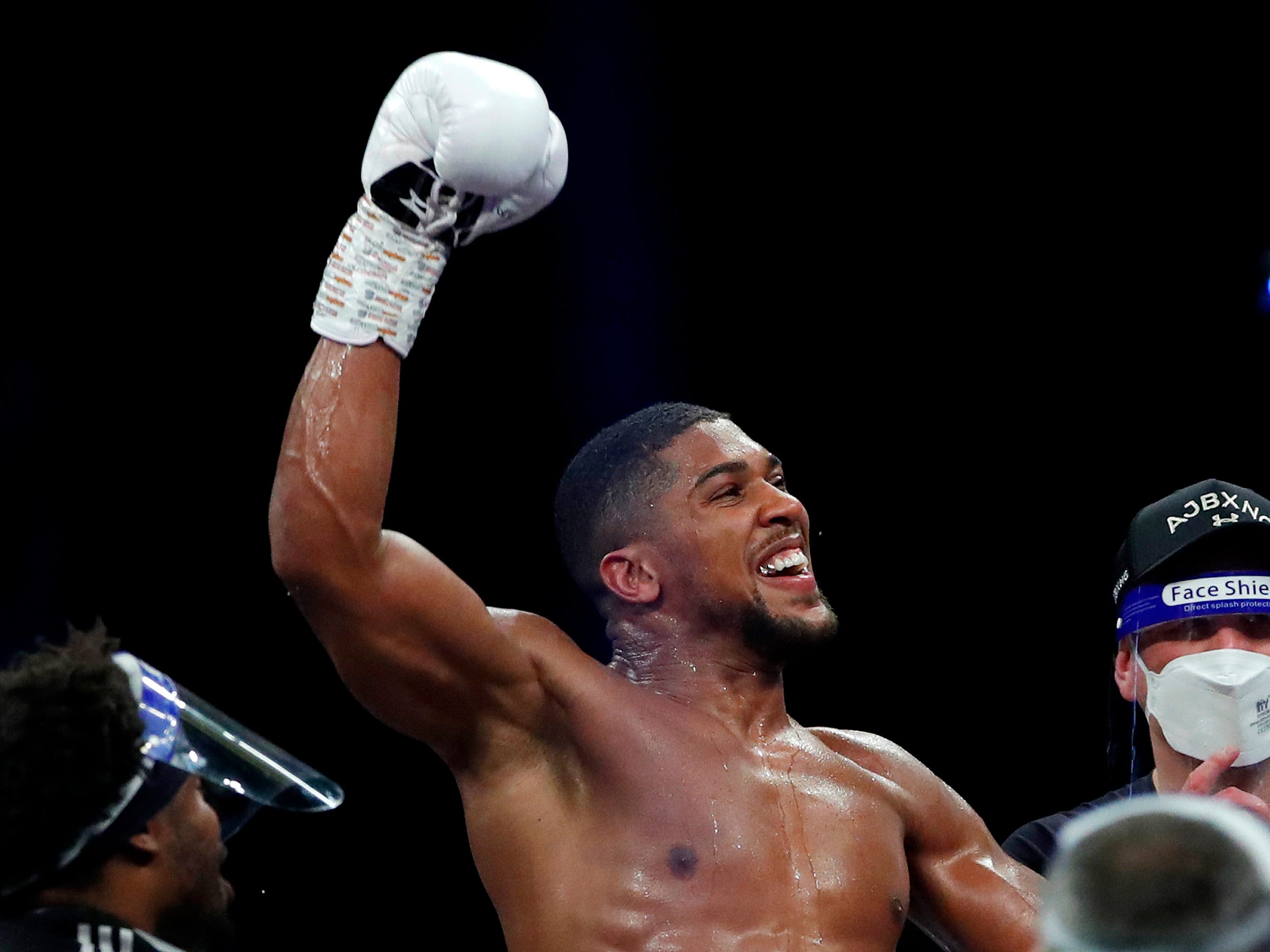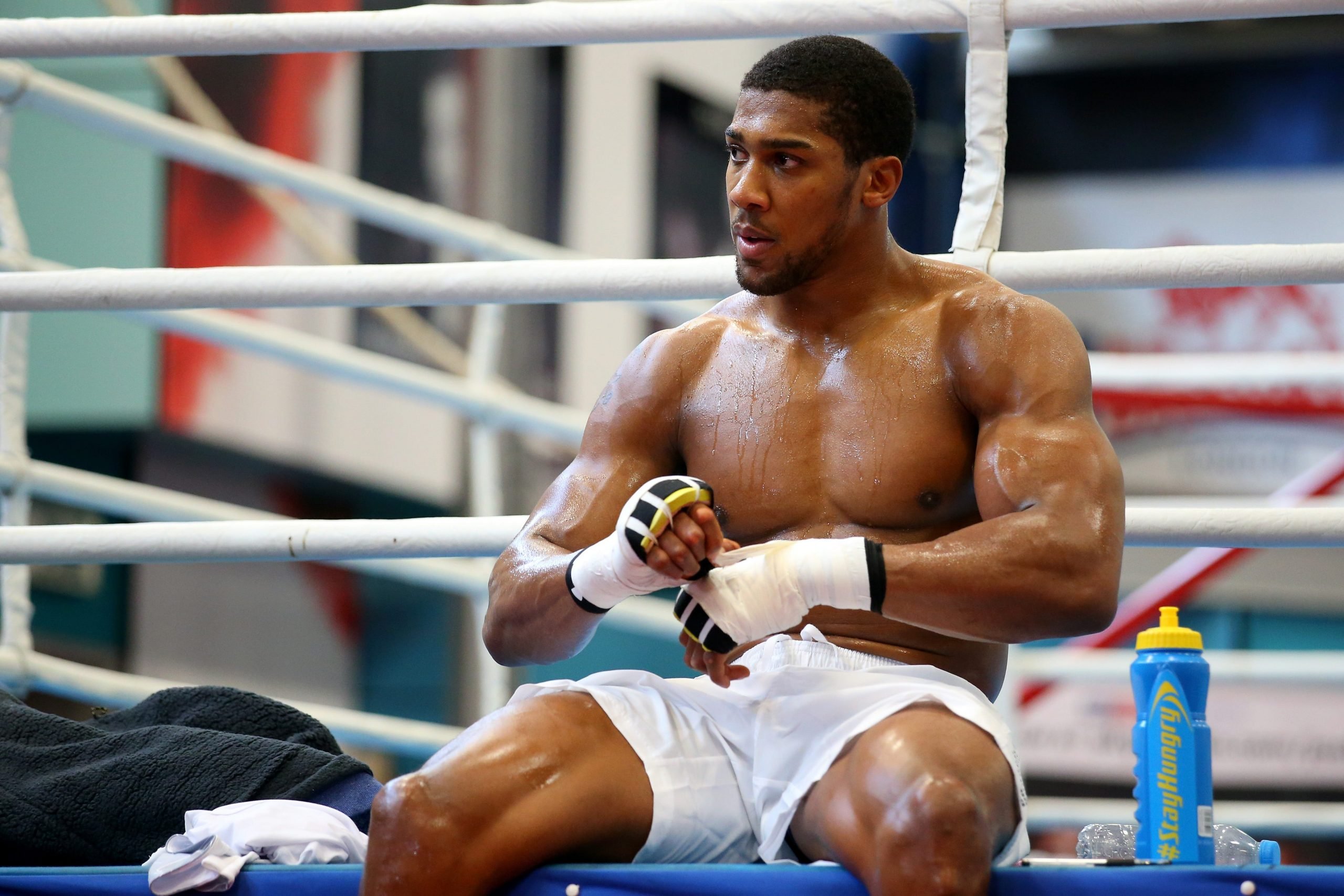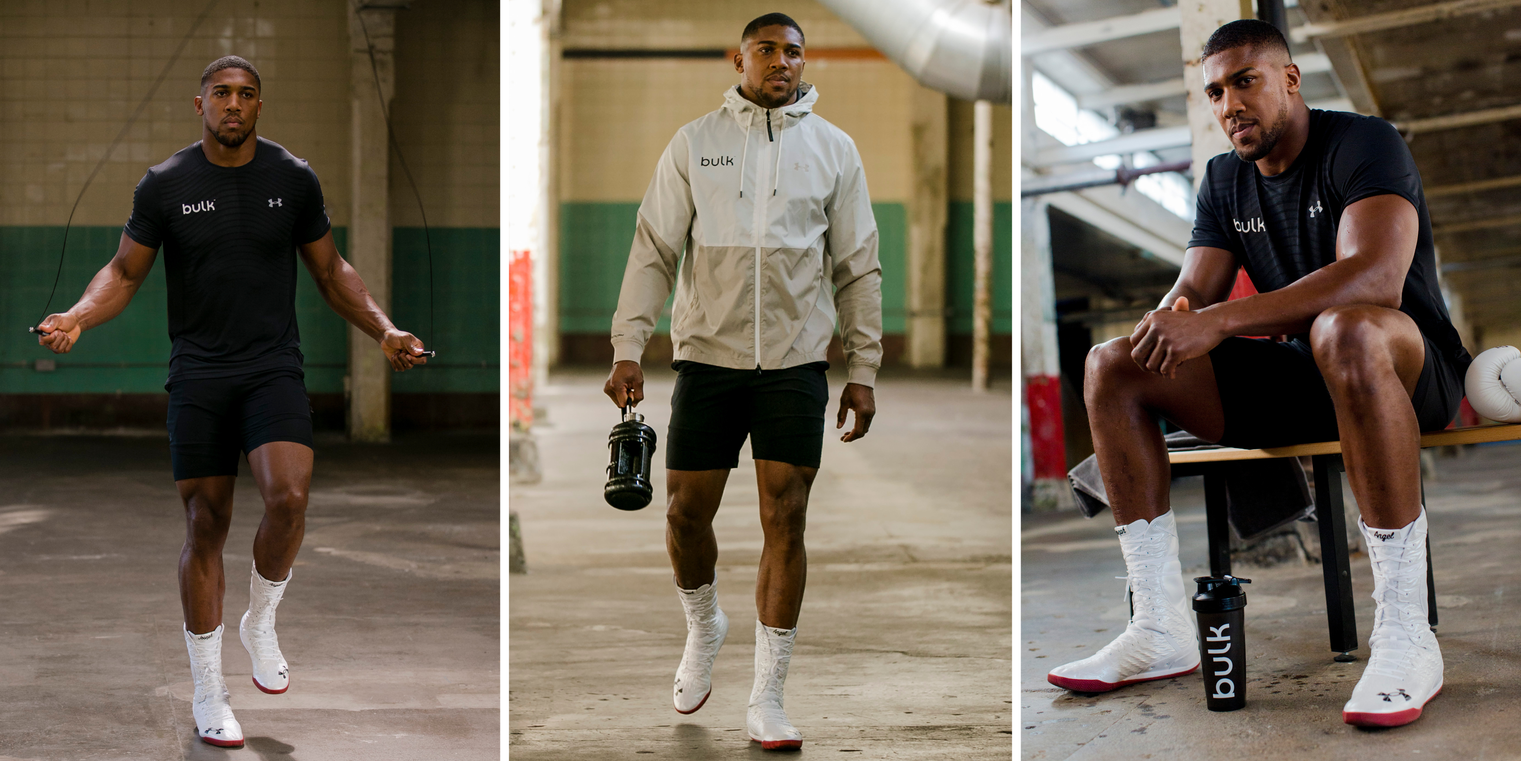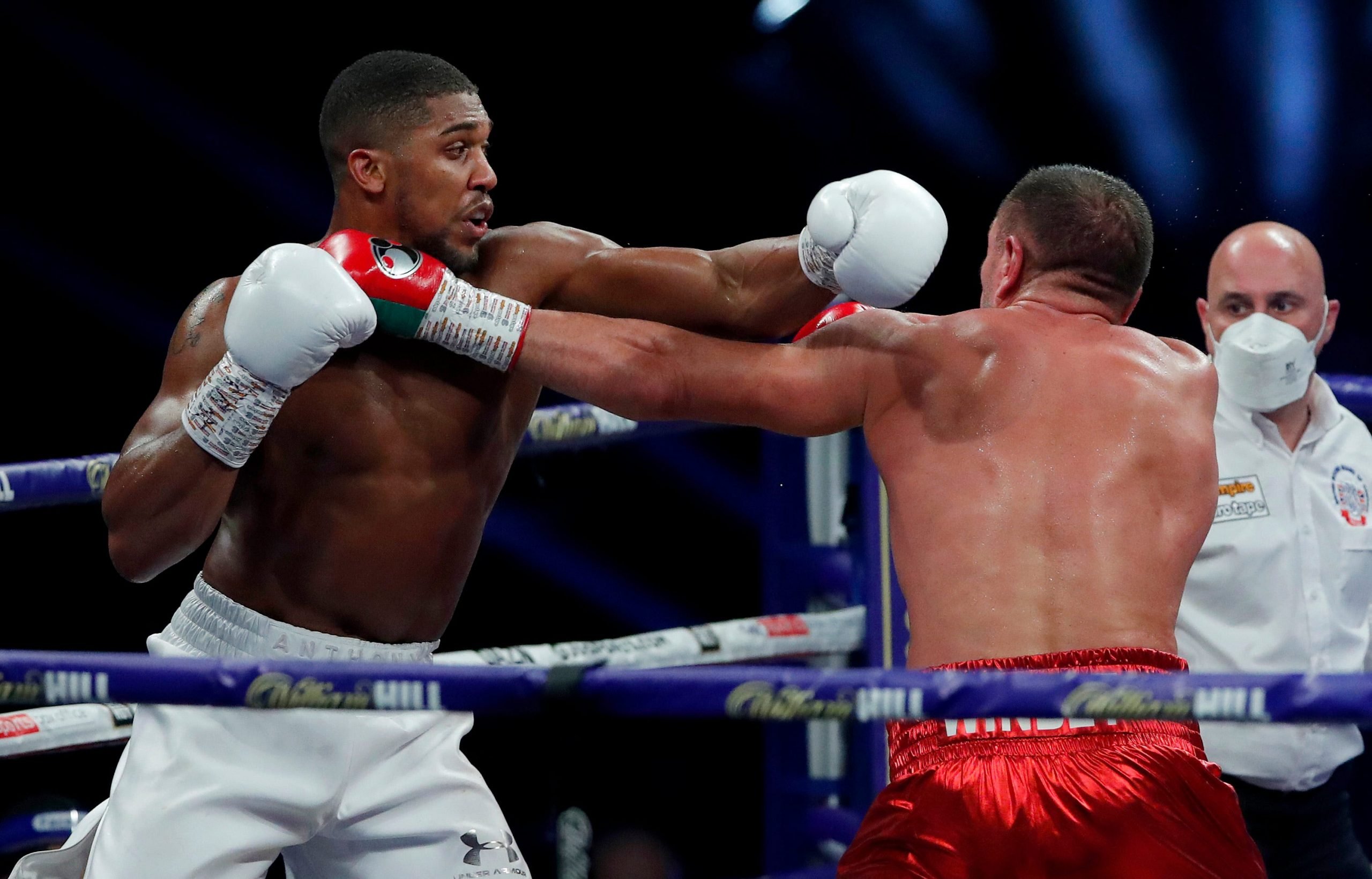
Andrew Couldridge/Getty
- Heavyweight champ Anthony Joshua said COVID-19 lockdowns were hard because he's "a man of routine."
- Joshua stayed focused by striving not to lose his "underdog mentality," he told Insider.
- He trains twice a day, six days a week, in a public gym, where fans often ask for selfies.
- This article is part of our series "The Gold Plan," which highlights Olympians and their values.
A little more than a decade ago, a then-18-year-old Anthony Joshua was locked up for fighting and was facing a 10-year prison sentence. He was let go on the condition that he wore an electronic tag for a year. That's when he discovered boxing.
One of his cousins took him along to a local amateur club, which ignited an inexhaustible passion for the sport.
Just a few years later, Joshua won gold at the London Olympics in 2012, and he's now a two-time world heavyweight champion.
"I transitioned my life in three years," he told Insider, going from smoking, drinking, and legal trouble, to winning a world championship.
Once an underdog, now an icon, with a much-anticipated fight with Tyson Fury in the cards, Joshua is training hard and staying hungry to remain on top.
Joshua told Insider how he mentally and physically prepares to spar in the ring, and why he never wants to lose his "underdog" mindset.
The pandemic threw Joshua's routine out the window
The coronavirus lockdowns were hard for Joshua, 31, because he's "a man of routine and discipline."
"I've been in a certain routine or regime for the last 12 years of my career, and then everything changed," he said.
When gyms closed in the UK, Joshua resorted to lots of skipping and shadow boxing, with coaching via Zoom.
Joshua trains in a public gym and is often approached by fans

Alex Livesey/Getty
Joshua trains twice a day, six days a week, and each training session can be as long as five hours. When he's not in the gym, he's focusing on recovery: He has an infrared sauna at home and sometimes does ice baths too.
Saturday is a light, mobility-focused day, and Sunday is a complete rest day. "Then, come Monday, I'm ready. It's like I've never trained," he said.
Joshua trains in a public gym, which comes with the challenge of fans approaching him for selfies while he's trying to focus.
"You want to be nice, but you've got to be serious," he said, and the same goes for when his friends ask to meet up after work.
"You're always in a mental battle trying to keep your mind in the right place," he said.
Joshua eats big meals and rarely snacks
Joshua eats his first meal 2 1/2 hours before heading to the gym, and he doesn't consume any food while training.
His breakfast consists of yams, eggs, and dates, followed by "a big bowl of porridge," a protein shake, a glass of orange juice, and a glass of honey, lemon, and ginger.
He boosts his energy before working out with a coffee or preworkout caffeine supplement, and he drinks a Bulk protein shake to recover immediately after training.

Bulk
"I've just ripped my muscles apart. They're really damaged, and now they're crying out for food," he said.
Joshua doesn't track his calories or macros, simply because he doesn't need to.
"I think I know what my body needs, and the reason I don't track is because then that takes away from other time in the day," he said.
His meals focus on whole foods and lots of vegetables and grains, such as vegetarian Thai green curry with wild rice, but his favorite thing to eat is a chocolate brownie and ice cream (which is an occasional treat).
The coronavirus pandemic was an opportunity to reflect
The pandemic was mentally challenging for everyone, but Joshua used it as an opportunity to reflect.
"As the world flipped on its head, it brought me back around," he said. "I was able to decrease a lot of pressure, and mentally it helped me a lot having time to myself and to rethink."
During that time of reflection, he also renewed his focus and sharpened his approach to the sport.
"When you open my brain, I want you to see a boxing ring," he said.
While Joshua can spend only so much time in the gym, mental training, he said, is 24/7. "That doesn't switch off," he said.
Being on top breeds complacency, Joshua said

Andrew Couldridge/Getty
Despite being a champion, Joshua strives never to lose his "underdog mentality."
Being on top, he said, breeds complacency, and it's easy to get too comfortable. So Joshua never wants to lose the hunger, drive, and work ethic he had when he started out: "Stay hungry" is a mantra he always comes back to.
"Every day I wake up is a war," Joshua said. "I'm fully focused on my goal, and you've got to know how to cancel on people. You've got to know how to be selfish."
When asked what keeps him motivated, Joshua jokes that he has no qualifications or experience to do anything else.
"So I'm pretty f---ed if this doesn't work," he said.


